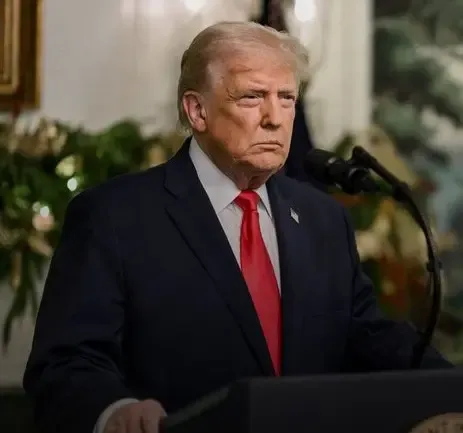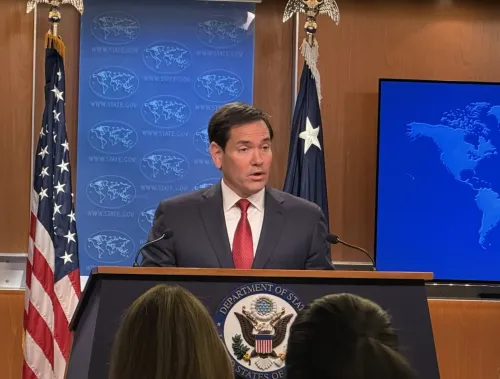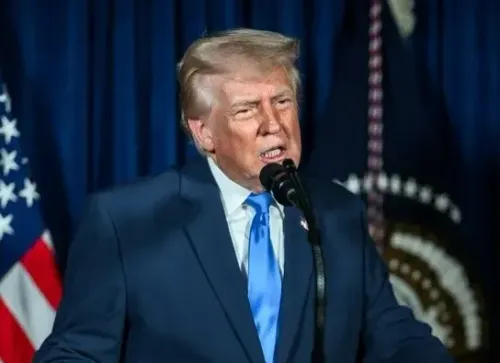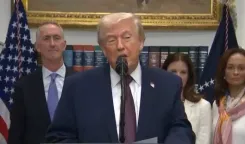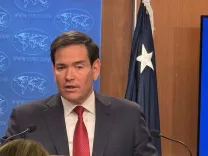T.S. Singh Deo Questions Centre's Credit for Ayushman Bharat While States Foot the Bill

Synopsis
Key Takeaways
- States bear the financial burden of the Ayushman Bharat scheme.
- The Centre's contribution is minimal compared to state spending.
- States like Delhi and West Bengal are opting out for better local initiatives.
- Singh Deo advocates for greater state control over healthcare financing.
- There is a global push for universal healthcare.
Bhopal, Jan 14 (NationPress) Senior Congress leader and former Deputy Chief Minister T.S. Singh Deo has expressed strong criticism towards the Ayushman Bharat Yojana, stating that the initiative places a significant financial burden on state governments while the Centre unjustly claims credit for its execution. He pointed out that the lion's share of healthcare costs under this scheme is covered by the states, leading many to initiate their own health programs.
In a conversation with IANS, Singh Deo highlighted that under Ayushman Bharat, the central government allocates merely Rs 50,000 as an insurance premium for each family, while states are responsible for the additional expenses from their own budgets.
"Why should the Centre take credit when state governments are incurring far greater expenses to deliver comprehensive health coverage?" he queried.
The Ayushman Bharat Yojana offers health insurance coverage of up to Rs 5 lakh annually for families Below the Poverty Line (BPL) and Rs 50,000 for those not in that category.
Singh Deo noted that states like Delhi and West Bengal have chosen to opt-out of the scheme, arguing that their own health initiatives provide a more thorough coverage.
"The BJP asserts that residents of Delhi and West Bengal are being deprived of the benefits of Ayushman Bharat due to the non-BJP administrations' refusal to implement the scheme. However, the reality is that these states are investing more in healthcare and providing superior access than what the Centre's scheme offers," Singh Deo explained.
He emphasized the global movement towards universal healthcare, remarking, "There has been a global consensus for the last 30-50 years that every citizen should have access to complete health facilities, ranging from minor treatments to critical care, funded through public resources. While the United Nations has set a target for universal healthcare, many nations, including India, are yet to realize it fully, with a new target set for 2030."
Singh Deo remarked, "Ayushman Bharat merely extends the Pradhan Mantri Swasthya Yojana initiated by former Prime Minister Manmohan Singh. While it carries forward the concept, its execution falls short, as states end up shouldering most of the financial burden."
Using Chhattisgarh as an illustration, Singh Deo stated, "When the scheme was launched, around Rs 1,800 crore was spent on its implementation, with the Centre contributing only Rs 350 crore. The remaining expenses, including those exceeding Rs 5 lakh per family, were absorbed by the state government. This clearly shows that the Centre's contribution is limited to the premium, while states cover the larger share of costs."
He contended that states should have greater authority over healthcare expenditures since they provide the majority of funding.
"Why should the Centre claim credit for a scheme when states are the ones investing more to ensure its effectiveness?" he questioned.
The Delhi government has also resisted the implementation of the Ayushman Bharat Yojana, asserting that it would degrade existing healthcare programs in the national capital.
A recent petition by seven BJP MPs advocating for the scheme's implementation has faced opposition from the Delhi government.
The Delhi administration has insisted that its own health programs provide superior coverage and services compared to the Centre's initiative.
Singh Deo's comments arise amidst ongoing discussions regarding the roles of the Centre and states in healthcare financing, raising concerns about the effectiveness and credit distribution of the Ayushman Bharat scheme.



